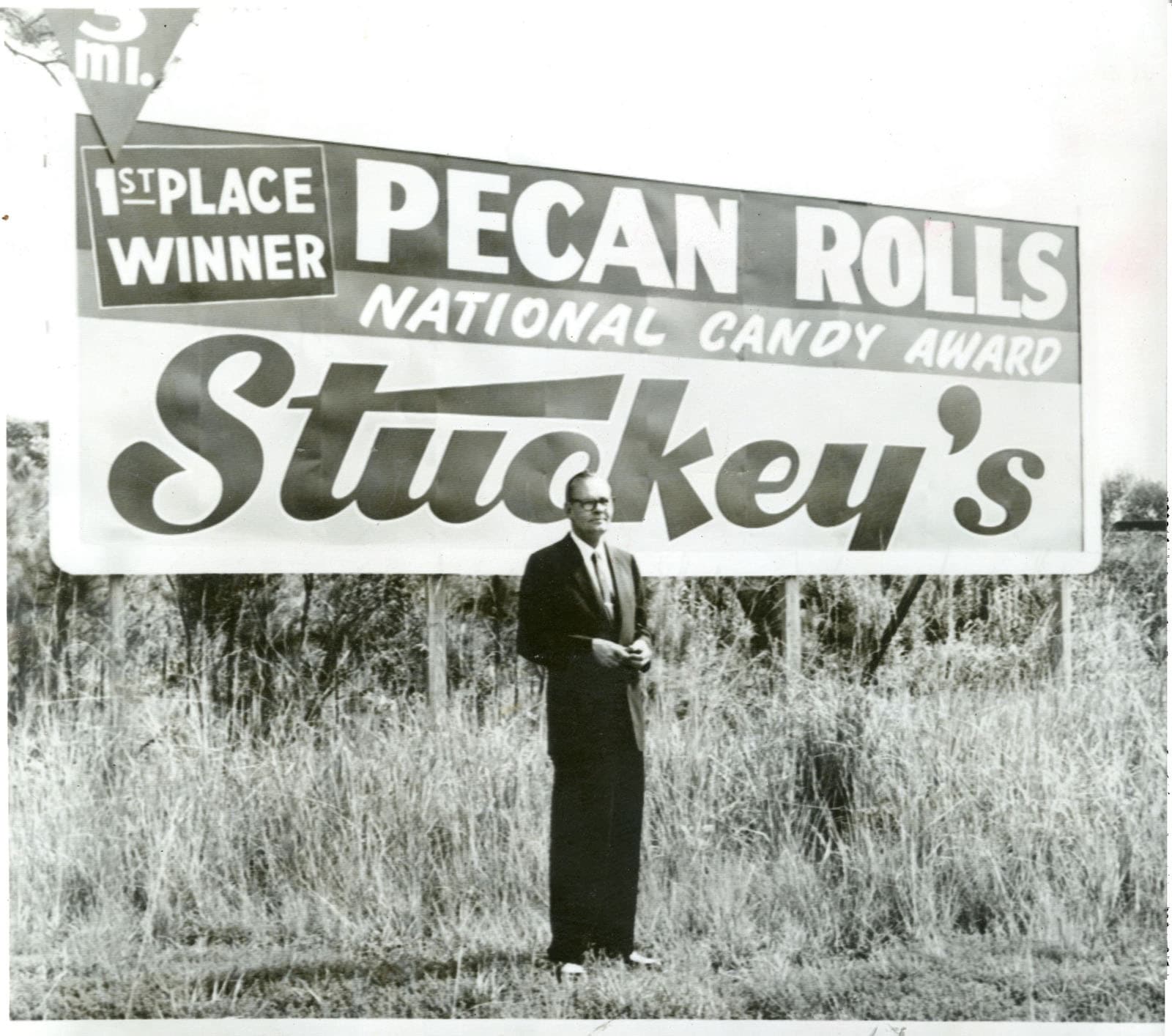What do you do when your family’s legacy is fading — and you may be the only person who can save it? Stephanie Stuckey didn’t just ask that question; she answered it with bold action.
In her 50s, she left a successful career in law and politics to revive Stuckey’s — the beloved roadside empire founded by her grandfather — from near-extinction. What followed was the gritty, heart-led reinvention of a struggling 87-year-old business into a thriving, purpose-driven company rooted in nostalgia, sustainability and a signature snack — pecans.
Steph Wagner, National Director of Women & Wealth, sat down with Stephanie for a virtual discussion on what led her to make the decision to buy back her family business, and how she’s harnessed resilience and reinvention to create a bold new vision for its future. Read on for an excerpt from their conversation or watch the full inspiring interview to learn how Stephanie overcame self-doubt, embraced the “messy middle” of entrepreneurship and found strength in community and collaboration.
The following transcript has been edited for clarity.
Steph Wagner: Stephanie, your story is such an inspiring one about honoring a family legacy. But I think just as importantly, it’s about forging a new path. So let’s start there. Please tell us a little bit about your incredible journey.
Stephanie Stuckey: The Stuckey's journey spans 87 years, and it started with very humble beginnings as a roadside pecan stand during the Great Depression. My grandfather could not find a job, and he did what entrepreneurs do: You create your own job and you solve people's problems. He was selling pecans because that was the one thing that was plentiful in middle Georgia at the time during that bleak period in our history. And people would pull over and say, ‘Well, we love the pecans, but do you have a quick snack? Where can we fill up with gas? Where's there a clean restroom? Where's a quick, hot meal?’ And within a few years, he built the first Stuckey’s store.
It was really the first roadside retail convenience store that offered everything you might need when you're road-tripping. Very rapidly, he expanded, and, fast-forward a few decades, at its peak in the 1970s, there were 370 Stuckey’s stores. He had a candy plant, he had a distribution center, and he had a billboard company. You could not take a road trip in this country without seeing billboards that said ‘Stuckey’s: 100 miles… 50 miles… 20 miles… five miles. Oh my God, you just passed a Stuckey's! Do a U-turn and get a pecan log roll.’ So, it was just this fun road-trippy nostalgic Americana brand. He sold the company when I was a little girl, and it was out of our family for decades. Then, five years ago, I had the completely unexpected opportunity to buy it because it was in distress and for sale. They were looking for buyers.



I'm the only Stuckey family member currently involved with the company. I sunk my life savings and made a pivot at the age of 50-ish. I'm now approaching that other end of the spectrum for this decade in my life. I very quickly found a team. Earlier, you said ‘leading the charge.’ I would say maybe ‘leading as a cheerleader’ — but I am certainly not leading alone. It is 100% a team effort. I have a main business partner who is the CEO, R.G. Lamar, and a whole team involved. I have another major partner, Ted Wright, who does marketing. It’s teamwork. And it's been a challenge. We can get more into the pivot, but... it's been hard. We are running an 87-year-old start-up.
SW: Well said. And it does take a team, right? You had a vision, you had an opportunity, but success doesn't come alone. You have to surround yourself with the right people. Can you go back and talk about that decision to buy back the company? I think so many of us — as we think about the many chapters that we have — we are thrown opportunities. And regardless of our age, self-doubt creeps in. We think, ‘Wait, really? Do I want to get outside my comfort zone again?’ That was so much easier when we were younger and we were more naive. You certainly grabbed the reins and went for it. Can you talk a little bit about that? What was it that made you say, ‘Why not?’
SS: Well, for me, it was an easier decision because it was my family's brand, and I loved my grandfather. So when it came down to it, it was more of an emotional decision. I just did not want to see everything that my grandfather had created disappear. There’s only a dozen original Stuckey’s stores still around. We do not own or operate them. We have pivoted our business model to focus on manufacturing pecan snacks and candies. We license those stores. But if there's only a dozen original Stuckey’s around, that means there's some 350 plus Stuckey’s that are shuttered, and most of them are still standing. For me, it was just a heartbreaking reminder of taking a road trip and seeing shuttered Stuckey’s stores on the side of the road. But it's got to be bigger than you, right? For you to really passionately throw yourself into something, it can't just be, ‘Oh, it's my grandfather's legacy.’ Because that's relevant to seven people — all my grandfather's grandchildren. For me, you have to get beyond yourself and ask, ‘What am I doing that's really going to lend something to a community of people?’
